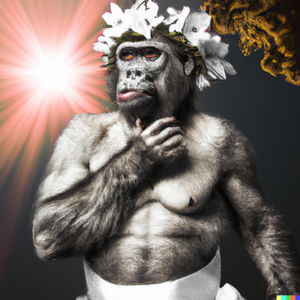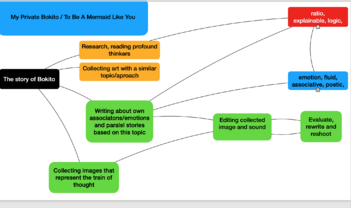|
|
| Line 56: |
Line 56: |
|
| |
|
| == Research notes: == | | == Research notes: == |
| - http://www.vergetenverhalen.nl/2015/09/17/bokito-breekt-los/
| | [https://docs.google.com/document/d/1_g7O8OH1q8kNdxhg0PajcYgk2Zuf7onMY-MVjdfs38g/edit?usp=sharing Notes] |
| | |
| De problemen beginnen als bezoekster Yvonne de Horde uit Zoetermeer bij het gorillaeiland aankomt. Ze komt daar “bijna dagelijks”, want Bokito is “haar lieveling”, zegt ze twee dagen later in de Telegraaf: ''“Sinds hij in Blijdorp zit, maak ik contact met hem. Als ik mijn hand op het glas legde, deed hij hetzelfde. Als ik naar hem lachte, lachte hij terug.”''
| |
| | |
| https://www.trouw.nl/nieuws/slachtoffer-ziet-bokito-weer-in-kader-therapie~b5ff4475/
| |
| | |
| https://www.youtube.com/watch?v=mt19UdHv8Rc
| |
| | |
| | |
| '''[https://www.youtube.com/watch?v=67JLgOMF75w Belgische vrouw in tranen na contactverbod met chimpansee]'''
| |
| | |
| De Zoo van Antwerpen heeft een van haar vaste bezoekers in een brief gevraagd om het contact met chimpansee Chita te beperken. Adie Timmermans betreurt het ‘contactverbod’, zo getuigt ze aan onze krant. ''“Dat beest houdt van mij en ik van hem. Ik heb niets anders meer, waarom nemen ze me dat af?”''
| |
| | |
| | |
| '''[https://www.hln.be/de-krant/planckendael-neemt-al-te-kritische-bezoeker-abonnement-af-gaan-ze-misschien-most-wanted-foto-aan-ingang-hangen~ae10bd5f/ Planckendael neemt al te kritische bezoeker abonnement af: "Gaan ze misschien 'most wanted'-foto aan ingang hangen?"]'''
| |
| | |
| Na het stadionverbod is er nu ook het dierentuinverbod. Een man uit Putte is niet langer welkom in de Zoo en Planckendael. Zijn abonnement is eenzijdig opgezegd, omdat hij de verzorgers herhaaldelijk beledigd zou hebben. Na de dood van drie olifanten ging het van kwaad naar erger. "Ik wilde alleen een beter leven voor die dieren."
| |
| | |
| | |
| https://www.vice.com/nl/article/jpy4jb/een-terugblik-op-de-keer-dat-bokito-een-vrouw-schaakte
| |
| | |
| | |
| https://humansandnature.org/fostering-a-new-relationship-between-humans-and-nature/
| |
| | |
| | |
| https://www.sciencedirect.com/science/article/pii/S0168159107001426
| |
| | |
| https://en.wikipedia.org/wiki/Objet_petit_a#:~:text=In%20the%20psychoanalytic%20theory%20of,%22A%22)%20which%20represents%20otherness
| |
| | |
| https://thedangerousmaybe.medium.com/lacans-concept-of-the-object-cause-of-desire-objet-petit-a-bd17b8f84e69
| |
| | |
| Lacan’s concept of the ''objet petit a'' is deeply inspired by the ideas of other psychoanalysts such as Sigmund Freud’s “lost object”, Melanie Klein’s “partial object” and Donald Winnicott’s “transitional object”.
| |
| | |
| | |
| The otherness of ''objet petit a'' is more significant than this sort of alterity. This little “object” of otherness would not exist if human beings did not exist. The ''objet petit a'' only “exists” in the relation between humans and language.
| |
| | |
| | |
| Simply put, '''jouissance''' is pleasure-in-pain. For example, eating to the point where it becomes greatly uncomfortable. It’s the excessive enjoyment that ends up bringing pain and discomfort. '''Jouissance''' destabilizes oneself. '''Jouissance''' can also be thought of as an abundance of intensity or stimulation in the body. Lacan associates '''jouissance''' with repetition compulsion or with those acts we repeat over and over again, but which also cause all sorts of problems in our lives.
| |
| | |
| ''Don’t you know that it’s not longing for the maternal breast that provokes anxiety, but its imminence? What provokes anxiety is everything that announces to us, that lets us glimpse, that we’re going to be taken back onto the lap. It is not, contrary to what is said, the rhythm of the mother’s alternating presence and absence. The proof of this is that the infant revels in repeating this game of presence and absence. The security of presence is the possibility of absence. The most anguishing thing for the infant is precisely the moment when the relationship upon which he’s established himself, of the lack that turns him into desire, is disrupted, and this relationship is most disrupted when there’s no possibility of any lack, when the mother is on his back all the while, and especially when she’s wiping his backside.''
| |
| | |
| | |
| The moment language takes hold and places restrictions on jouissance is the moment when a ''structural lack'' is produced within the human being — the lack of immediate jouissance. Now one’s being is a sort of non-being. “I am my inability to be.” Now there’s some-''thing'' that I’m missing, that I lack, that I must have in order to be whole again. There’s some “part” of myself that I have been separated from. This some-''thing'' is ''objet petit a''. We could say that ''objet petit a'' is the ghost of one’s primordial jouissance that emerges through the socialization process. The ''objet petit a'' is that little remainder of the excessive jouissance we were once submerged in.
| |
| | |
| | |
| ''The objet a is not, therefore, an object we have lost, because then we would be able to find it and satisfy our desire. It is rather the constant sense we have, as subjects, that something is lacking or missing from our lives. We are always searching for fulfilment, for knowledge, for possessions, for love, and whenever we achieve these goals there is always something more we desire; we cannot quite pinpoint it but we know that it is there. This is one sense in which we can understand the Lacanian real as the void or abyss at the core of our being that we constantly try to fill out. The objet a is both the void, the gap, and whatever object momentarily comes to fill that gap in our symbolic reality. What is important to keep in mind here is that the objet a is not the object itself but the function of masking the lack.''
| |
| | |
| - Sean Homer
| |
| | |
| | |
| '''''Objet a'' is not an ''actual'' object, but, rather, is a ''constitutive lack''. It’s the lack that produces the desiring subject caught up in the play of signifiers (the differential and mediated structure of language), that is, it is the lost “object” that ''causes'' you to desire in the first place. The ''objet petit a'' is the positional void where one’s jouissance used to be.'''
| |
| | |
| | |
| ''Objet petit a'' is not some positive reality, but, instead, is a void, an empty spot, a position of lack. Yet it’s a void that, for the subject, is like a thing or a missing part that has its own substantial reality. As paradoxical as it sounds, ''objet petit a'' is a positive negativity, a “substantial” void, a reified emptiness. The ''objet petit a'' is the void or lack you unconsciously pursue in the hope that the attainment of this missing part of yourself will give you an ontological completeness you once “enjoyed” as an infant.
| |
| | |
| | |
| Lyrics from Queen’s song ‘Hammer to Fall’ sum up ''objet a'': “Every night and every day, a little piece of you is falling away”. However, this “little piece of you” is not something you can name or point out. As far as your first-person, phenomenological experience goes, ''objet petit a'' is never directly perceived as the missing part of yourself, since it’s really a void. There’s a quote I’ve often seen attributed to André Breton that expresses this truth: “All my life, my heart has yearned for a thing I cannot name”.
| |
| | |
| | |
| '''The Lacanian object or ''objet petit a'' is not the object of desire. Instead, it is the object-cause of desire, that is, it is the object that causes you to desire the object you actually desire.''' Imagine being in a theater watching a graceful ballerina perform a spotlit solo. You find yourself completely captivated and memorized by this dancer. However, what in this analogy is the condition of this enchantment? It is the very spotlight in which the ballerina stands out from the darkness. In a sense, we are not even conscious of this light — it is “unconscious”. Analogously, it is this “object” that causes the ballerina to attract our attention. In other words, in this analogy, the object-cause of desire (''objet petit a'') is the spotlight and the object of desire is the ballerina.
| |
| | |
| | |
| ''“To set our target, I shall say that the object a — which is not to be situated in anything analogous to the intentionality of a noesis, which is not the intentionality of desire — is to be conceived of as the cause of desire. To take up my earlier metaphor, the object lies behind desire”''
| |
My Private Bokito / To be a Mermaid Like You
Short film for the EYE RESEARCH Lab
Desiring someone/somebody/something, but knowing there is a certain ‘wall’ between you and the object of desire.
And also enjoying this element vice versa, being visible and being the element of desire.
And what happens when that wall falls away?
Are the fascination and the fantasy underneath sometimes better than reality itself?
Themes: desire, objectification
Keywords: social-media, online vs offline, predators, fantasy vs reality, identity
Planning / workflow:
Calendar
- Week 41: starting with the first 'seed' of the idea: the story of Bokito. Researching certain newspapers/items about this event. + setting up the first guidelines of design for this project.
- Week 42: Researching the phenomenom of 'desire' and 'objectification'
- Week 43: Writing poems, first texts, recording some voice samples
- Week 44: Shooting some first shots
- Week 45: Starting to experiment with voice-over and image
- Week 46: Re-evaluating the design process. Making a plan for missing footage and elements of content that still need to be covered.
- Week 47: Shooting/filming/recording
- Week 48: Editing
- Week 49: Editing
- Week 50: Sound-design
- Week 51: Holliday break - Editing / sound-design
- Week 52: Holliday break - Editing / sound-design
- Week 2: 9th of january: deadline
To watch:
- Chris marker
- Sans soleil
- Samsara
- Jonas Mekas
- A Twist in the fabric of space
- As I was moving ahead I saw brief glimpses of beauty
- An Oversimplification of Her Beauty
Research notes:
Notes


